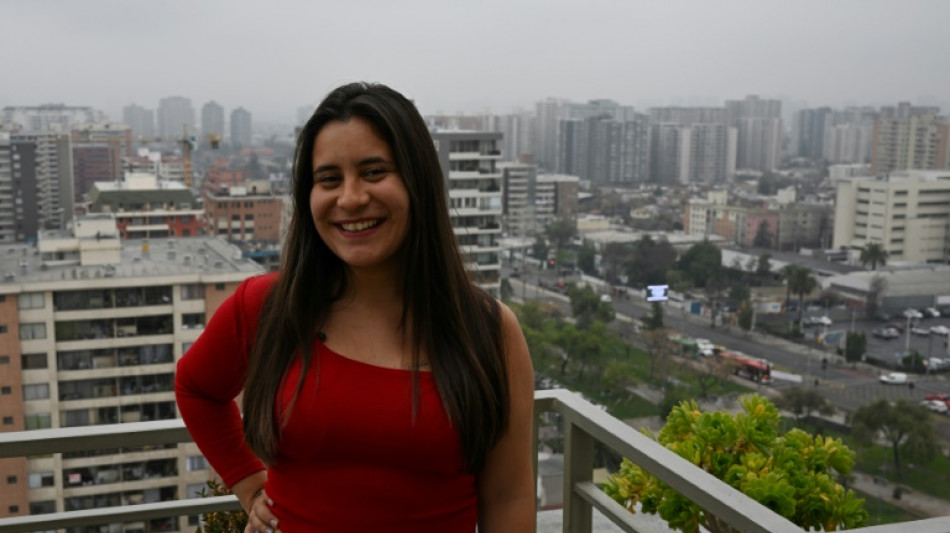
-
 US Navy veterans battle PTSD with psychedelics
US Navy veterans battle PTSD with psychedelics
-
'Unheard of': Dodgers in awe of iron man Yamamoto

-
 UK police probe mass train stabbing that wounded 10
UK police probe mass train stabbing that wounded 10
-
'It's hard' - Jays manager Schneider rues missed chances in World Series defeat

-
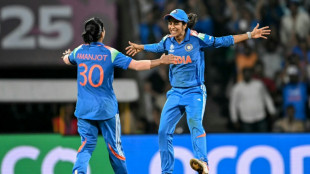 Women's cricket set for new champion as India, South Africa clash
Women's cricket set for new champion as India, South Africa clash
-
Messi scores but Miami lose as Nashville level MLS Cup playoff series

-
 Dodgers clinch back-to-back World Series as Blue Jays downed in thriller
Dodgers clinch back-to-back World Series as Blue Jays downed in thriller
-
Vietnam flood death toll rises to 35: disaster agency
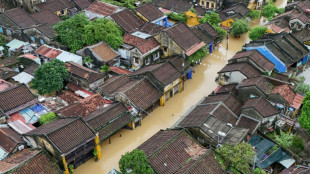
-
 History-making Japan golf twins push each other to greater heights
History-making Japan golf twins push each other to greater heights
-
Death becomes a growing business in ageing, lonely South Korea
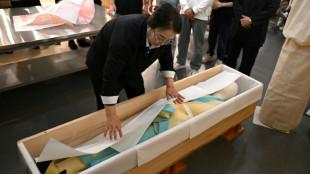
-
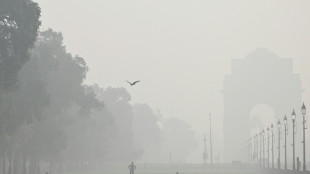 India's cloud seeding trials 'costly spectacle'
India's cloud seeding trials 'costly spectacle'
-
Chiba wins women's title, Malinin leads at Skate Canada

-
 Siakam sparks injury-hit Pacers to season's first NBA win
Siakam sparks injury-hit Pacers to season's first NBA win
-
Denmark's fabled restaurant noma sells products to amateur cooks
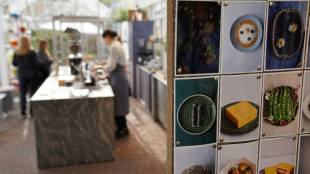
-
 UK train stabbing wounds 10, two suspects arrested
UK train stabbing wounds 10, two suspects arrested
-
Nashville top Messi's Miami 2-1 to level MLS Cup playoff series

-
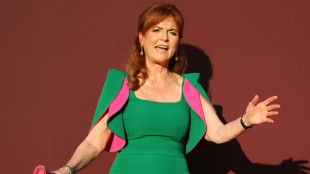 Fergie, her daughters and the corgis hit by Andrew crisis
Fergie, her daughters and the corgis hit by Andrew crisis
-
'I can't eat': Millions risk losing food aid during US shutdown

-
 High price of gold inspires new rush in California
High price of gold inspires new rush in California
-
'Swing for the fences': Carney promises bold budget as US threat grows
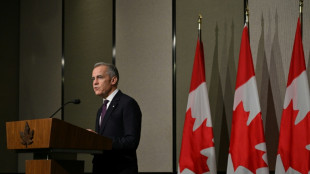
-
 UK police arrest two after 'multiple people' stabbed on train
UK police arrest two after 'multiple people' stabbed on train
-
NBA Hawks lose guard Young for four weeks with knee sprain

-
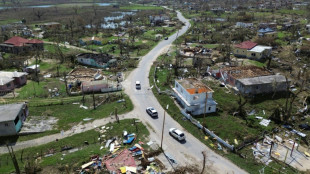 50 dead as Caribbean digs out from Hurricane Melissa
50 dead as Caribbean digs out from Hurricane Melissa
-
Forever Young gives Japan first Breeders' Cup Classic triumph

-
 Mbappe's Real Madrid extend Liga lead, Villarreal move second
Mbappe's Real Madrid extend Liga lead, Villarreal move second
-
Salah savours 'great feeling' after 250th Liverpool goal

-
 Ethical Diamond surges to upset win in $5 million Breeders' Cup Turf
Ethical Diamond surges to upset win in $5 million Breeders' Cup Turf
-
Kinghorn kicks Toulouse to Top 14 summit

-
 Mbappe extends Real Madrid's Liga lead in Valencia rout
Mbappe extends Real Madrid's Liga lead in Valencia rout
-
All Blacks sink 14-man Ireland 26-13 in Chicago Test

-
 World champ Malinin takes lead at Skate Canada
World champ Malinin takes lead at Skate Canada
-
Liverpool snap losing streak as Salah hits 250 goals in Villa win

-
 Salah's 250th Liverpool goal sinks Villa as Arsenal cruise at Burnley
Salah's 250th Liverpool goal sinks Villa as Arsenal cruise at Burnley
-
Morant suspended by Grizzlies after rebuking coaching staff

-
 Spalletti begins Juve tenure with win at Cremonese but Napoli held
Spalletti begins Juve tenure with win at Cremonese but Napoli held
-
Frank refuses to condemn Van de Ven, Spence for snub in Spurs defeat

-
 France superstar Dupont extends Toulouse deal
France superstar Dupont extends Toulouse deal
-
Egypt officially opens grand museum near pyramids

-
 French fraud watchdog reports Shein for 'childlike' sex dolls
French fraud watchdog reports Shein for 'childlike' sex dolls
-
Scotland thrash USA before All Blacks' clash

-
 Five things to know about the Grand Egyptian Museum
Five things to know about the Grand Egyptian Museum
-
Bayern rest stars but ease past Leverkusen before PSG clash

-
 Dead quiet: Paris Catacombs close for renovations
Dead quiet: Paris Catacombs close for renovations
-
Families separated, children killed as survivors flee Sudan's 'apocalyptic' El-Fasher
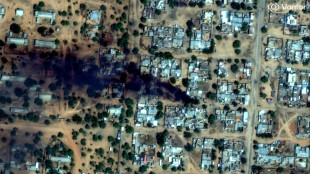
-
 Napoli held by Como as Spalletti begins Juve adventure
Napoli held by Como as Spalletti begins Juve adventure
-
Southampton boss Still vows to fight on as pressure mounts

-
 Borthwick hails 'ball of energy' Pollock as England down Australia
Borthwick hails 'ball of energy' Pollock as England down Australia
-
Egypt opens grand museum in lavish, pharaonic ceremony

-
 Joao Pedro strikes at last as Chelsea edge past Spurs
Joao Pedro strikes at last as Chelsea edge past Spurs
-
Ohtani to open for Dodgers in World Series deciding game seven


Chile birth rate plummets as women say no to motherhood
Chilean lawyer Camila Ramirez, 29, does not want to give up her freedom and well-being to become a mother, and she is not alone.
In the past decade, births have fallen by 29 percent in Chile, now the country with the lowest birth rate in the Americas.
With 1.17 children being born per woman, the Latin American nation is far from the 2.1 needed to maintain its population, according to the National Statistics Institute (INE).
"Being a mother is an absolutely selfless task. I love to travel and when I go on a trip, I do it alone. I don't ask anyone. I just disappear," said Ramirez, who is balancing her job with a master's degree.
"I can't see myself being in charge of feeding and entertaining a child, always prioritizing the wellbeing and care of a child over my own wellbeing," she added.
Declining birth rates are sparking alarm across the globe, especially in developed economies. Even Pope Francis has weighed in, suggesting couples who have pets instead of children are selfish and a threat to humanity.
Chile's birthrate is below that of developed economies such as Italy, Japan, and Spain, according to the UN Population Division.
"The changes around reproduction in Chilean society have been very fast and abrupt. What took decades in Europe has happened in 10 or 20 years in Chile," said Catholic University sociologist Martina Yopo.
Chilean women have gained greater access to education -- especially since universities became free in 2008 -- and entered the workforce in higher numbers.
And with greater reproductive autonomy, "today being a woman does not necessarily mean being a mother, and having a family does not necessarily require children," added Yopo.
- 'An emergency' -
The INE predicts Chile's birthrate will continue to fall in coming years, and not even an increase in immigration is managing to reverse the situation.
"It is an emergency, a health crisis. I can think of few things more important than this from an economic, social and ethical point of view," said Anibal Scarella, president of the Chilean Society of Reproductive Medicine.
Economist Jorge Berrios said the drop in birth rate means "there will be many older people and that they will most likely have to continue working."
"There is no generational renewal in people, in the economy."
As in many countries, gender inequality means that many working women know that if they become mothers, they will bear the main load of parenting.
There is also little support from the state in areas such as childcare, said Yopo.
And women are choosing to have children later, with a third of all births in Chile last year to women aged between 30 and 34. The trend has led to a rise in infertility.
"We are not helping people to be able to reconcile the development of their careers and the desire to fall pregnant," said Scarella, who wants to improve access to assisted fertility and egg preservation.
Physiotherapist Tamara Guzman never dreamed of being a mother, and kept postponing the decision. Now 41, and married, she feels she can't afford the lifestyle she enjoys and raise a child.
"Everything is very expensive. I see it in my friends who are mothers and are super tired, with dark circles under their eyes, and stressed because they have to pay the nanny or the kindergarten, diapers and milk. If I had more income, yes, I would think about it," she said.
- Dire state of the world -
Angered by violence against women and the state of the world, banking executive Isidora Rugeronni decided to get sterilized four years ago, aged just 21.
"I felt that there was a lot of evil in the world, a lot of injustice and I came to 'Antinatalism', which is a philosophy that states that it is not ethical to have biological children with the world as it is," she said.
"I can do much stronger activism and impact society as a woman without biological children," she said.
Rugeronni said she would like to be a foster mother, and also "adopt all the animals I want."
Chile has seen an 80 percent drop in teen pregnancies over the past two decades, according to the INE.
And it is not only women balking at parenthood: the number of vasectomies performed in Chile has risen almost ten-fold in the past decade, from 768 in 2013 to 7,580 in 2023, said the agency.
Meanwhile, female sterilization in public hospitals increased by 54 percent in the same period.
R.Fischer--VB




